While history might seem like a boring subject to some, many would argue that it is absolutely fascinating. But no matter which side you belong to, you ought to admit that learning history with the help of memes can be quite fun.
Nowadays, those interested in history-based memes have many options to choose from. But today we want to shed light on the ‘History Told In Memes’ Instagram account, and some of the pearls it has shared with history enthusiasts online. Covering everything from wars to royalty and so much more, the posts are both entertaining and informative, so if you’re curious to browse them, wait no longer and scroll down to find them on the list below.
On the list below you will also find Bored Panda’s interview with Assistant Professor of History at the Department of History, Philosophy, and Geography at Columbus State University, Dr. Laura Davis, and Professor of History at the University of Massachusetts Amherst, Dr. Samuel J. Redman, who were kind enough to answer a few of our questions about history.
#1
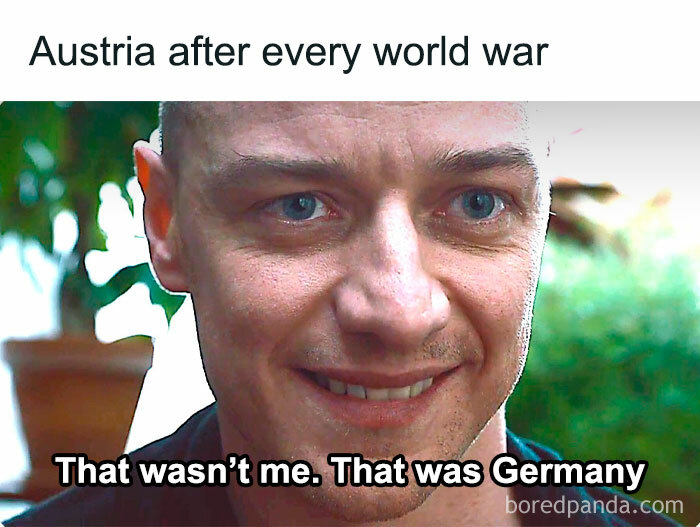
Image credits: history.told.in.memes
#2

Image credits: history.told.in.memes
#3

Image credits: history.told.in.memes
Discussing the significance of history with Bored Panda, Dr. Laura Davis emphasized that it is literally all around us. “It's the lived experiences of the people we are talking to, the buildings we walk by every day, the historic monuments and markers we drive by and don't always notice, and the murals on the side of a building.”
She noted that the past shapes, impacts, and informs the present. Therefore, history helps us make informed decisions about the present. “The knowledge of history helps us to contextualize the ever changing and often chaotic present by allowing us to understand change over time, cause and effect, and contingency,” she said, adding that by studying history, we can better understand how and why we got to a specific moment in time. “To quote the American Historical Association, #EverythingHasAHistory.”
#4
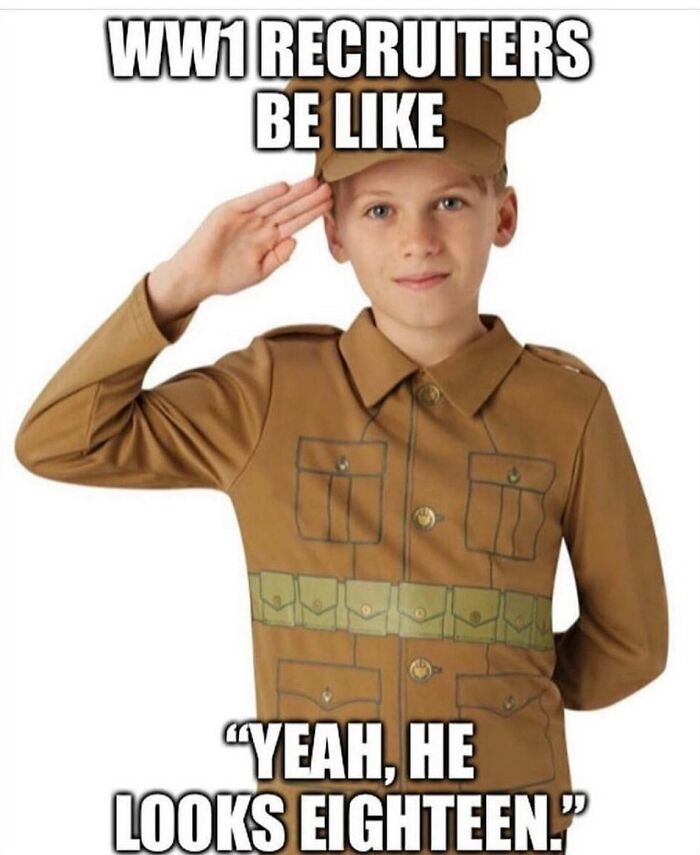
Image credits: history.told.in.memes
#5
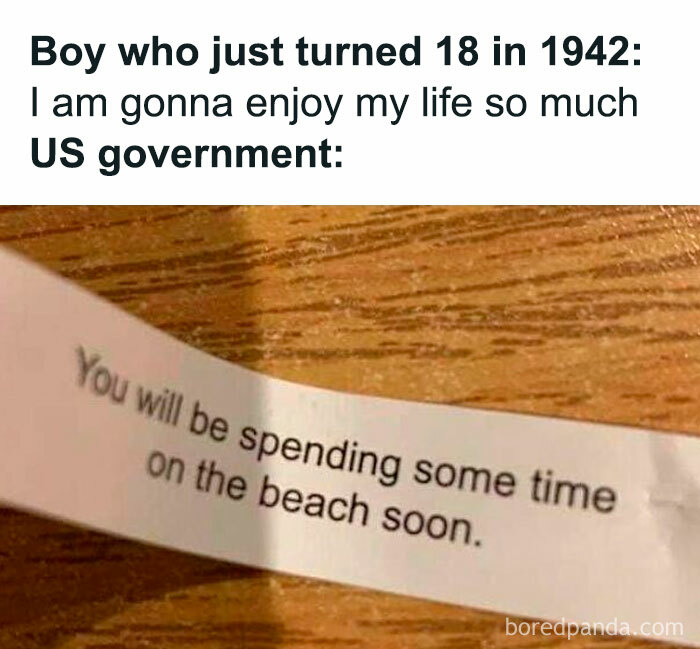
Image credits: history.told.in.memes
“Understanding history allows us to gain invaluable critical thinking skills: contextualization, analyzing problems, evaluating evidence, and debating,” Dr. Davis continued. “It helps us gain cultural awareness and empathy for those who may be different from us. It teaches us about both the past and the present, allowing us to see patterns and to understand cause and effect—-and how and why things are the way that they are. And, history can even help us understand ourselves better.”
#6

Image credits: history.told.in.memes
#7
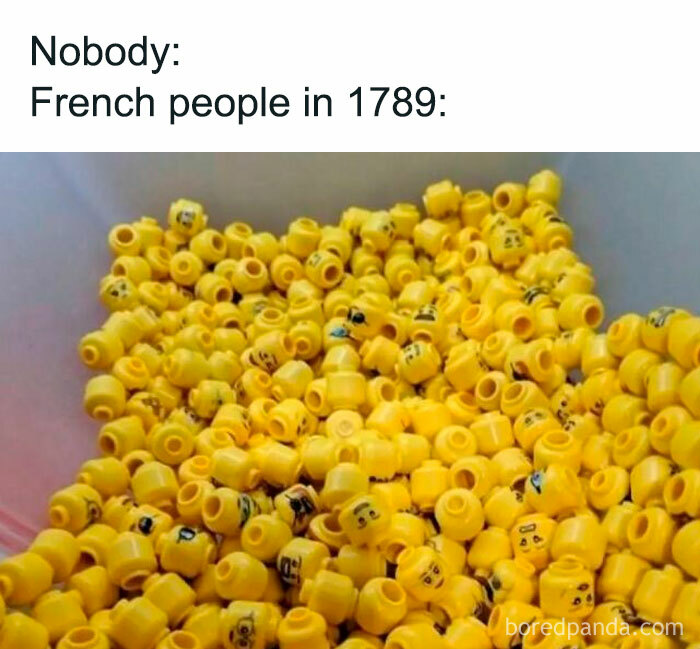
Image credits: history.told.in.memes
#8

Image credits: history.told.in.memes
Dr. Samuel J. Redman seconded the idea that knowledge of history can help us understand today's happenings. “Students of history learn to build up an important muscle, sometimes called ‘historical thinking.’ Through history, we often come to a better understanding of what has motivated people throughout time and what things challenged them,” he told Bored Panda.
“We also learn that we are not necessarily alone in terms of the emotions we experience or the challenges we face. Previous generations of humans have dealt with many of the same challenges. Those who have spent time learning about and thinking through history also tend to develop greater empathy and a better understanding of the richness of human perspectives and ideas. We learn about the forces that have shaped our world and that many of them are still active, influencing the world in which we live today.”
#9
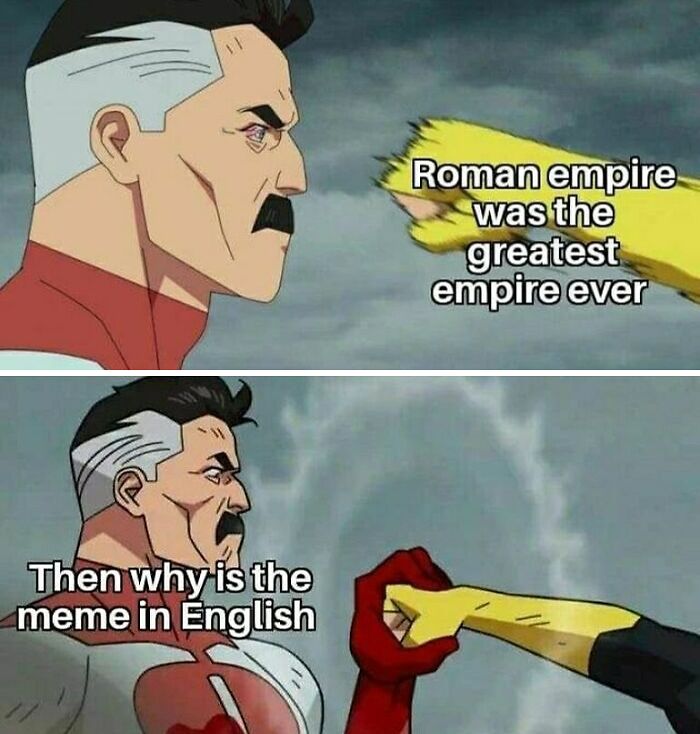
Image credits: history.told.in.memes
#10

Image credits: history.told.in.memes
#11
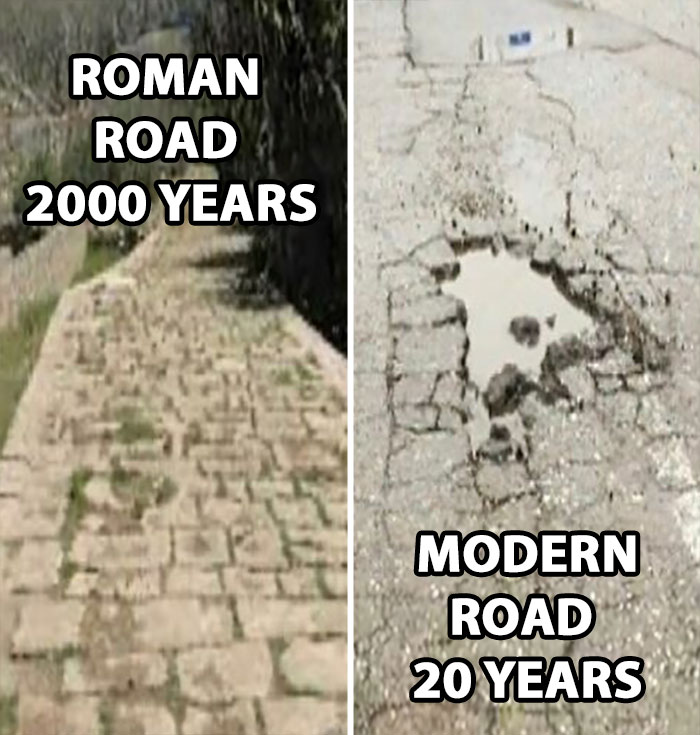
Image credits: history.told.in.memes
It’s no secret that many people nowadays get their knowledge from online sources, be it history or any other subject they’re interested in. But when browsing the loads of information, it’s crucial to make sure that the sources are reliable.
“For better or worse, many people get their history from the online world: recorded lectures on YouTube, informative TikToks, social media accounts that recount past events or share primary sources, web sites for museums and historic sites, and online articles like this one that engage in historical content. The issue of this, of course, is that not all accounts are trustworthy or based on historical data,” Dr. Davis pointed out.
“Just as we train our students to analyze primary sources to understand the creator's intent, audience, message, and historical context, we need to be critical of the online sources where we learn our history. Who is creating it? Why are they creating it? Where are they getting their information from?”
#12
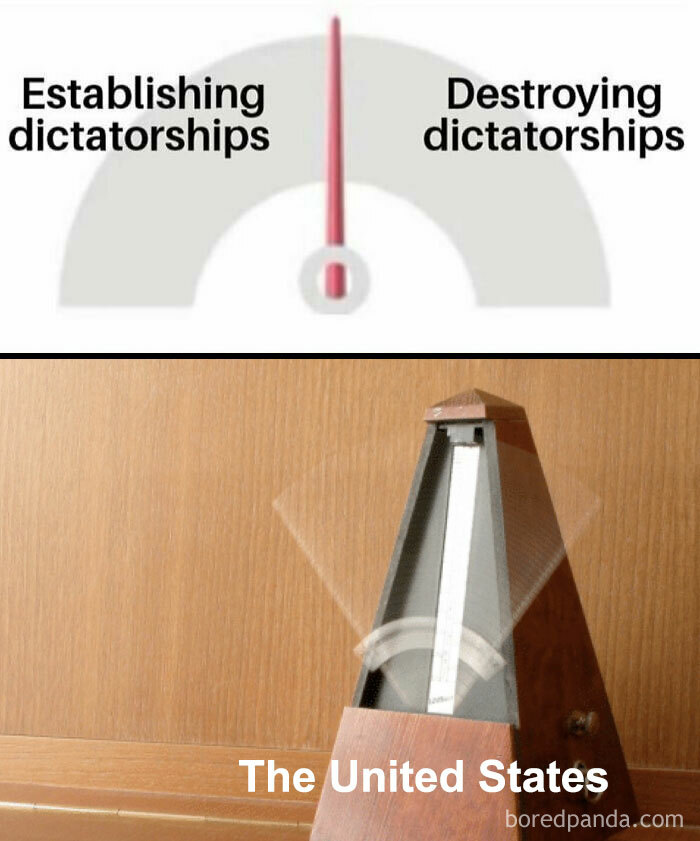
Image credits: history.told.in.memes
#13
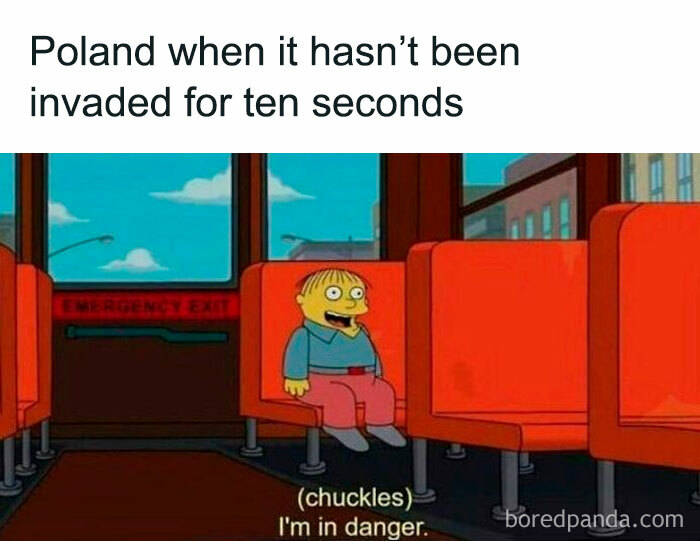
Image credits: history.told.in.memes
#14

Image credits: history.told.in.memes
“Critical thinking means applying some degree of skepticism to all sources, but this is especially important when applied to sources authored online by non-experts,” Prof. Redman emphasized, discussing the reliability of online sources.
“Who created this source? What motivated them? What is the evidence behind the claims being made? What are the perspectives, points of view, or biases that are being expressed in this content? Can this information be verified by another, potentially more reliable source? With a great deal of online content such as memes, viewers are never given the chance to see the evidence behind these claims. What sources are being used behind this content? Without the ability to look deeper, viewers rarely check the veracity of the claims being made by many history-oriented memes.”
#15
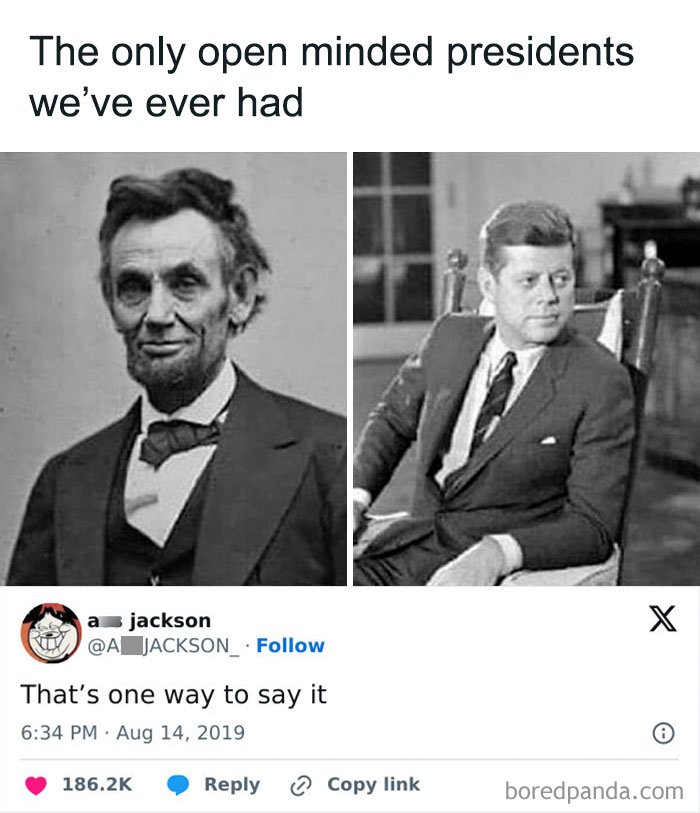
Image credits: history.told.in.memes
#16

Image credits: history.told.in.memes
#17
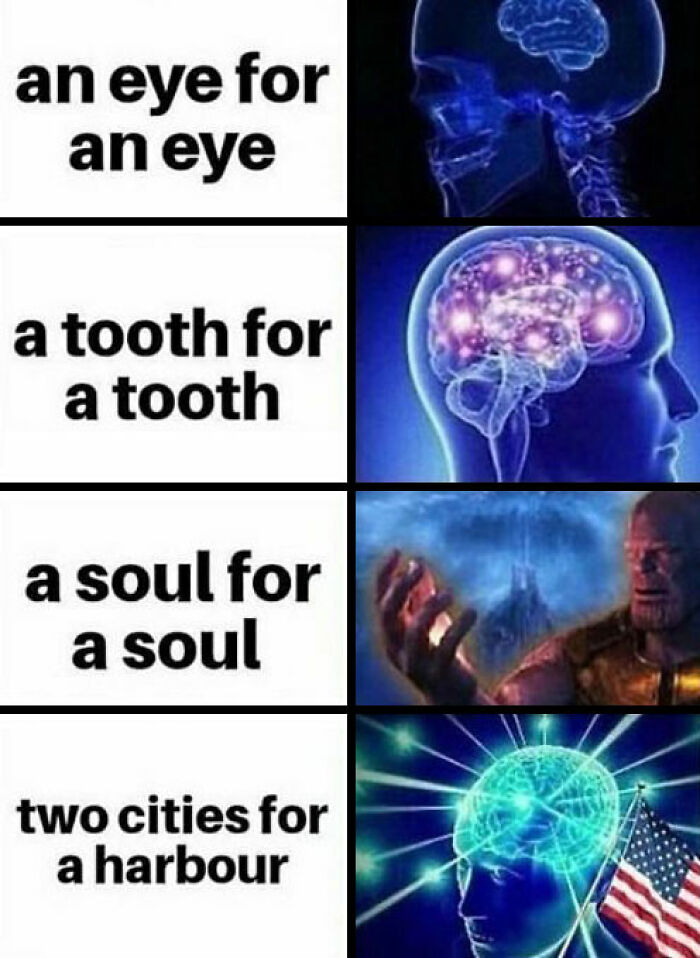
Image credits: history.told.in.memes
According to Dr. Redman, social media is a mixed bag for learning about history. “Without fact-checking, peer review, or any significant regulation, social media tends to favor stories that sound convincing, rather than stories we know to be true,” he noted.
“These stories sometimes contain grains of truth while also being wildly misleading or even inaccurate. Sometimes social media content is merely copied from another inaccurate source. I've noticed that many recent history videos posted online are written by artificial intelligence (AI). These tend to aggregate similar stories posted online and amalgamate them into ‘new content.’ But much like the weird human-like photos (with six fingers) that AI frequently generates, something within these AI-generated videos is usually a little ‘off.’
“On the other hand, social media has the potential to connect people with stories that interest them, especially in introducing them to stories with which they are unfamiliar,” the expert added. “Social media also has a global reach, introducing audiences to new stories, aided by rich visuals, and opening the door to added curiosity.”
#18
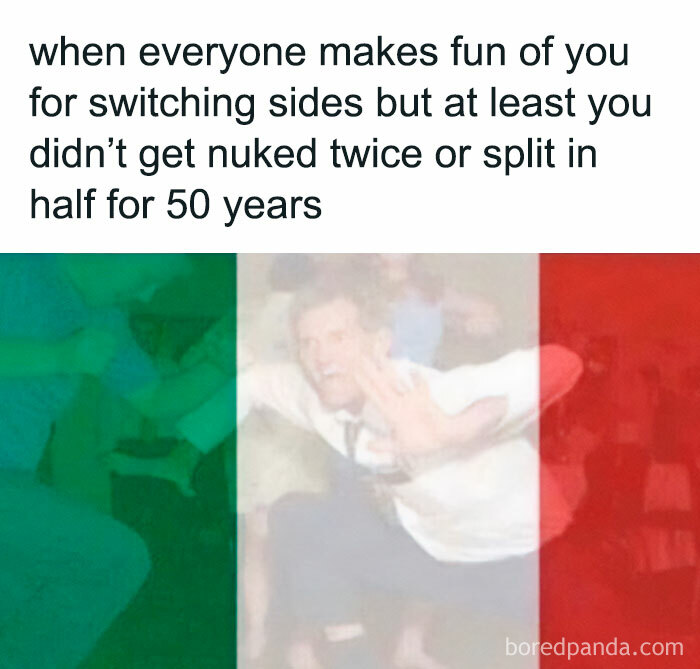
Image credits: history.told.in.memes
#19
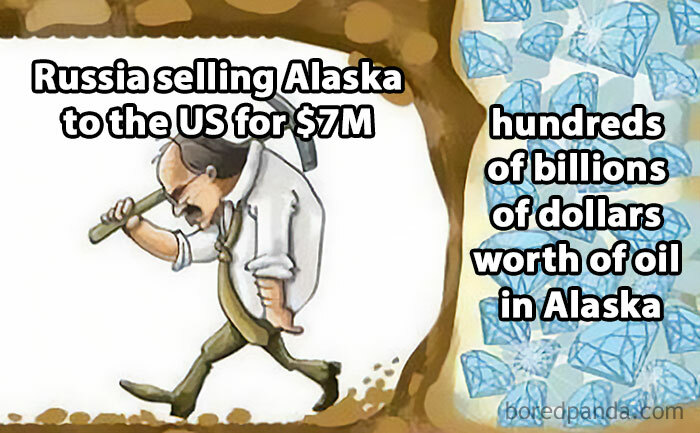
Image credits: history.told.in.memes
#20
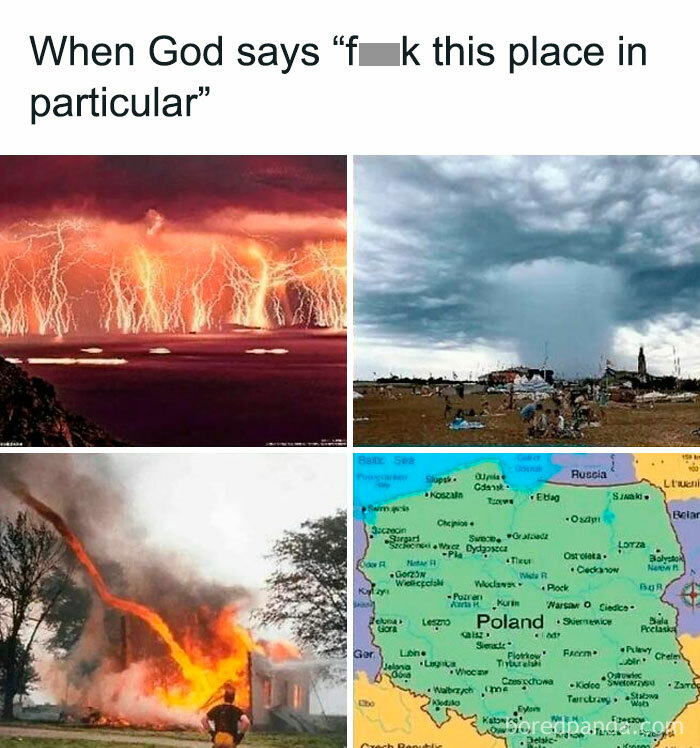
Image credits: history.told.in.memes
While some online sources can be a double-edged sword for history enthusiasts, factually correct memes tend to do more good than harm. “I think people can benefit from history-focused memes,” Asst. Prof. Davis told Bored Panda. “Memes can be an effective way to engage in history-based humor and draw people into the past. Memes often grab our attention, make what we are learning more memorable, and can make people, events, and ideas of the past seem more relatable to the present.
“I think the key is to take things a step further and then share more historical information about the event, place, or person highlighted in the meme. So, for example, a meme about World War II could also include a link to the National World War II Museum or a book about the conflict for more information,” she suggested.
#21
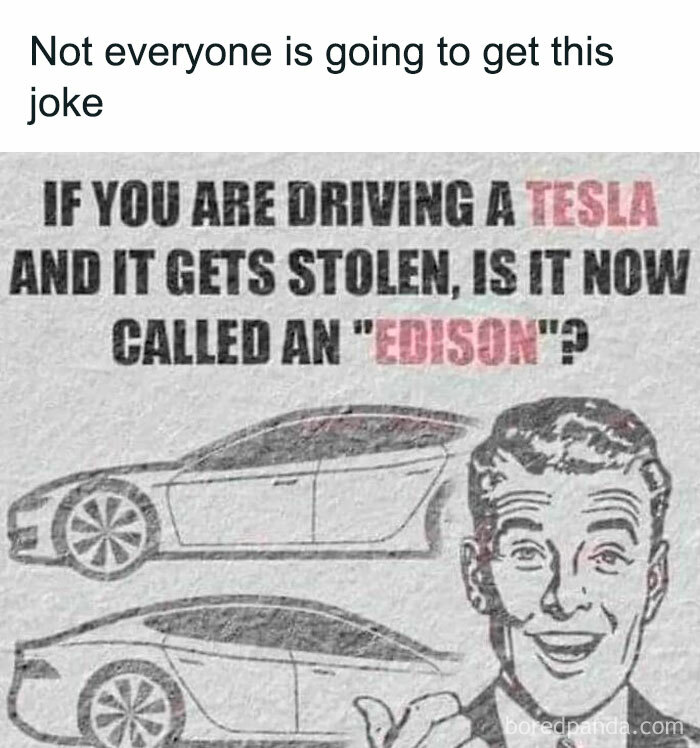
Image credits: history.told.in.memes
#22
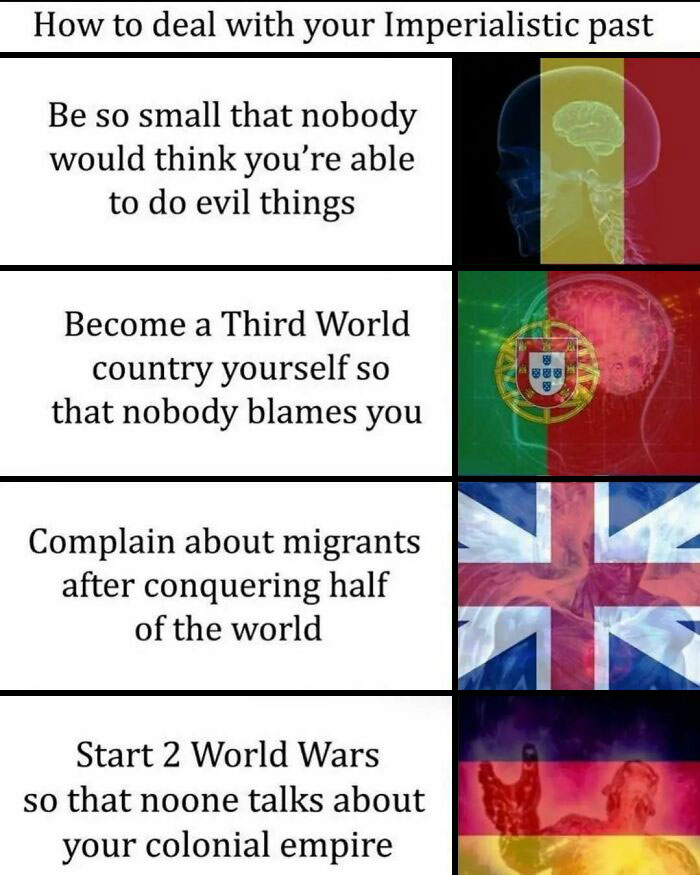
Image credits: history.told.in.memes
#23
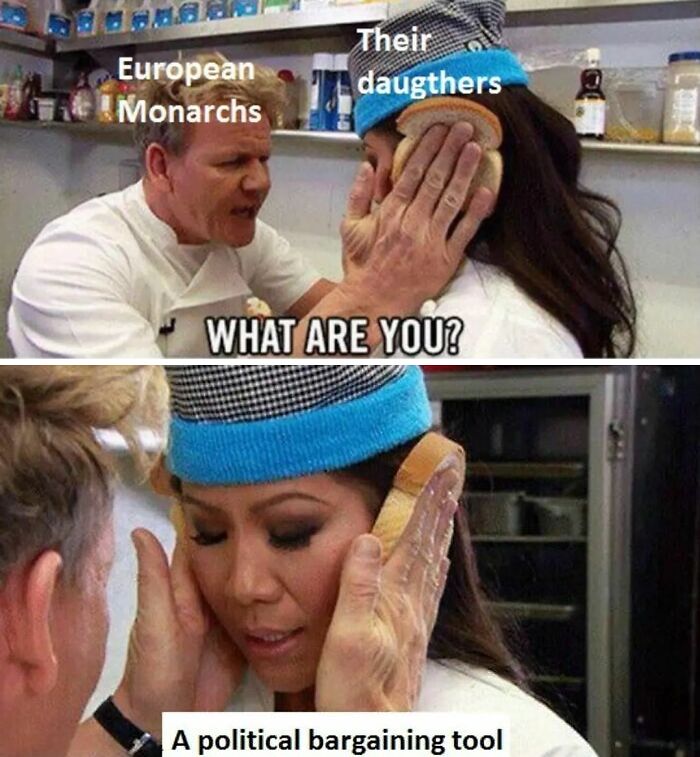
Image credits: history.told.in.memes
“Funny memes shouldn't be the only way we learn about history, but they do have the potential to open the door for educators to reach new audiences,” Dr. Redman noted, talking about the role memes and humor play in regards to educating oneself about history.
According to him, humor can be incredibly impactful in learning history. “People tend to learn better when they are plugged in and sincerely interested in the things being taught. Humor in teaching and storytelling tends to keep us engaged. In many times and places throughout history, amusing stories have been told not just to entertain, but also to make us think.
“Of course, not all histories lend themselves to humor in their being recounted, human lives also feature remarkable drama, tragedy, and sadness,” the historian added. “It is also the case that during many of the darkest moments in human history, people have sought out humor as an escape or a way to navigate life's many challenges.”
#24

Image credits: history.told.in.memes
#25

Image credits: history.told.in.memes
#26
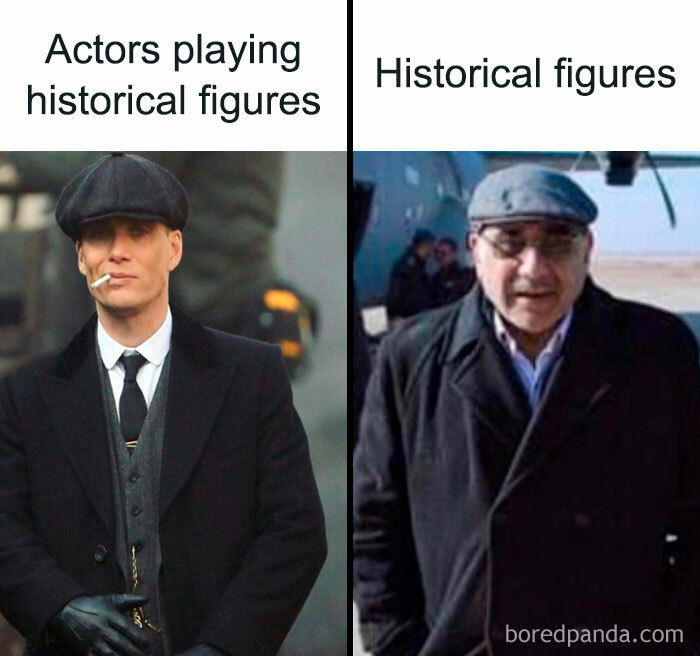
Image credits: history.told.in.memes
#27
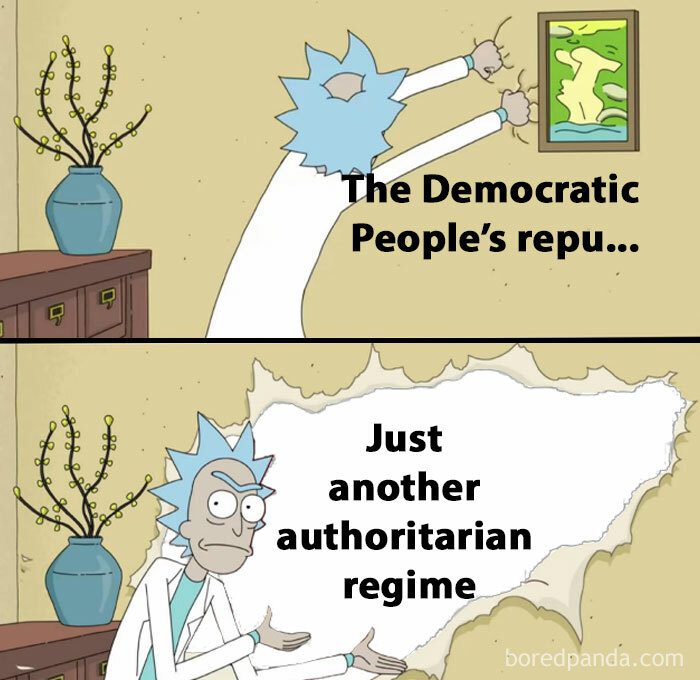
Image credits: history.told.in.memes
#28
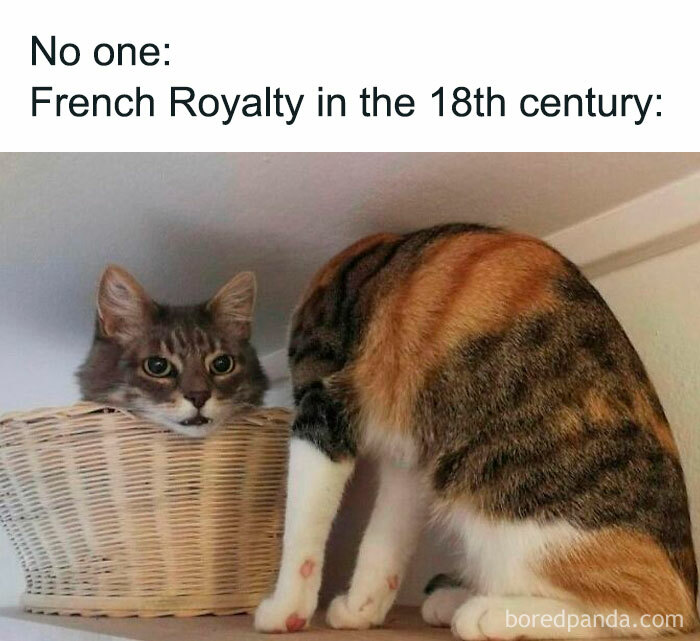
Image credits: history.told.in.memes
#29

Image credits: history.told.in.memes
#30

Image credits: history.told.in.memes
#31
That’s tough lil Lithuania.
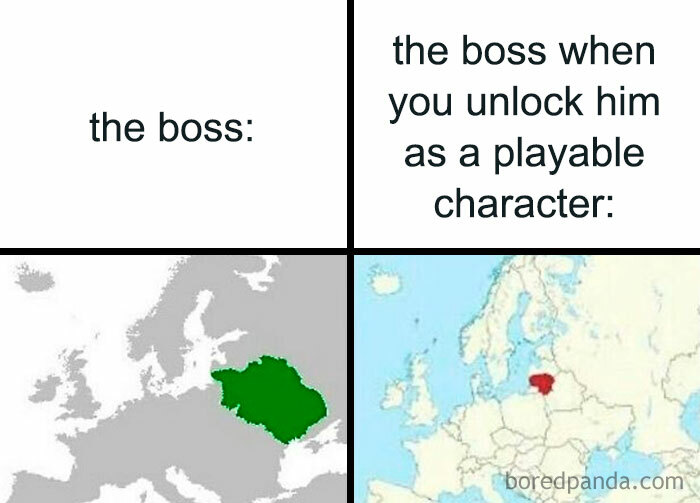
Image credits: history.told.in.memes
#32

Image credits: history.told.in.memes
#33
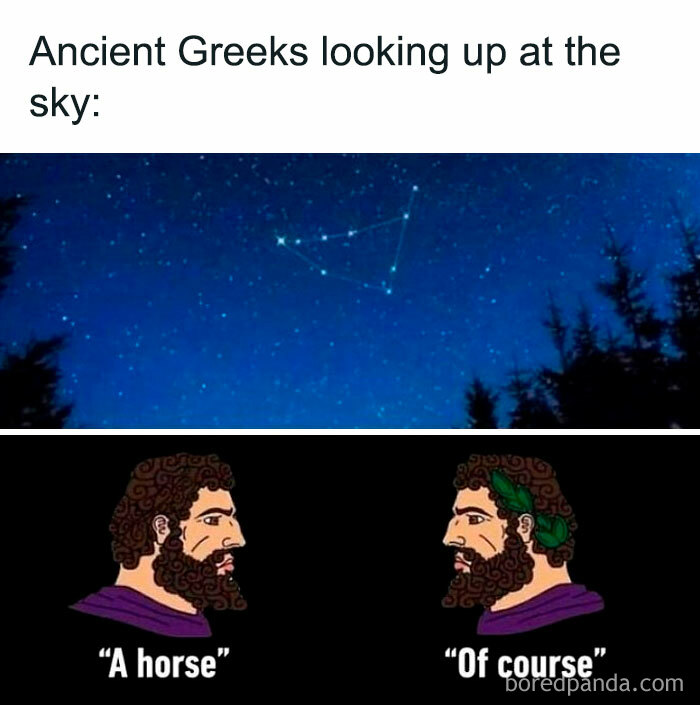
Image credits: history.told.in.memes
#34

Image credits: history.told.in.memes
#35

Image credits: history.told.in.memes
#36
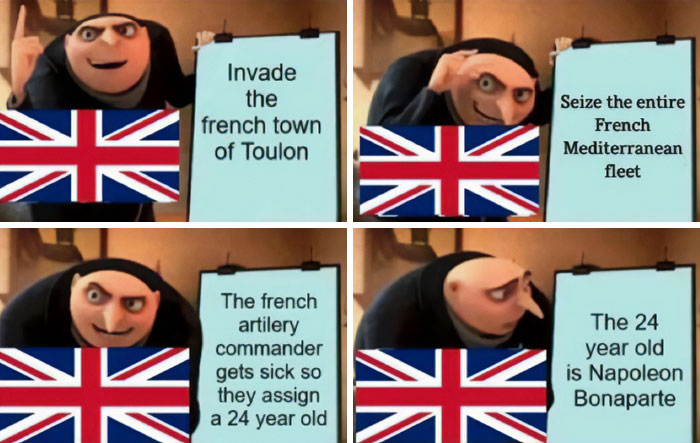
Image credits: history.told.in.memes
#37
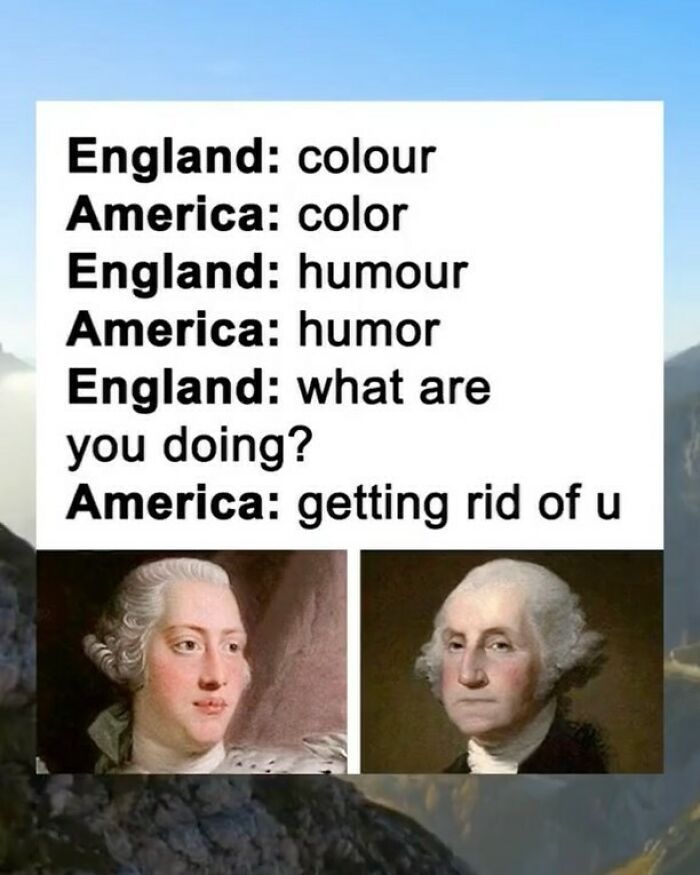
Image credits: history.told.in.memes
#38

Image credits: history.told.in.memes
#39
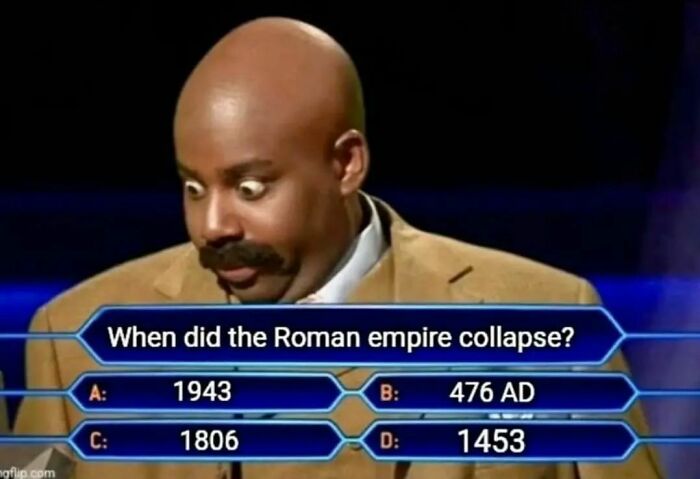
Image credits: history.told.in.memes
#40
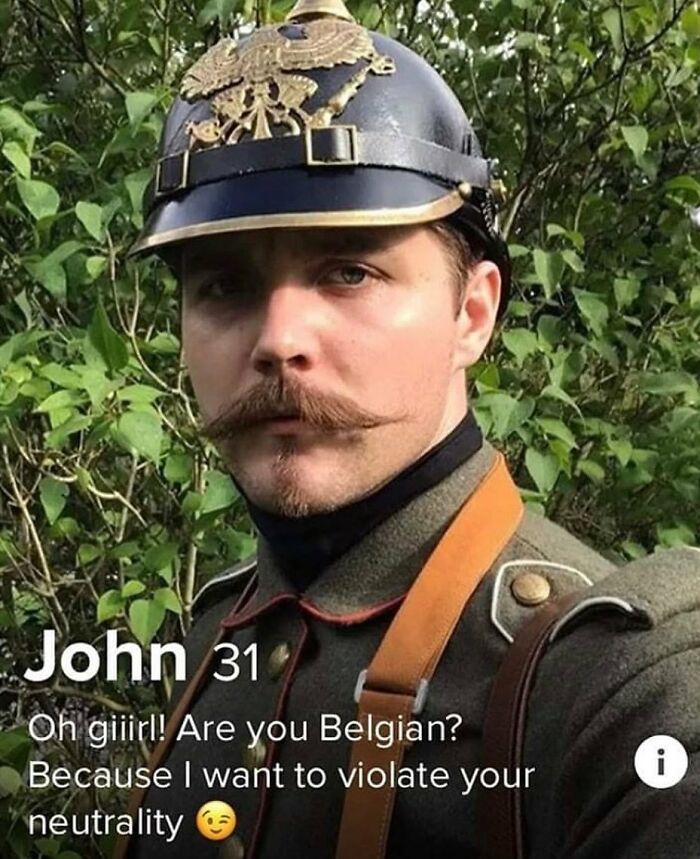
Image credits: history.told.in.memes
#41
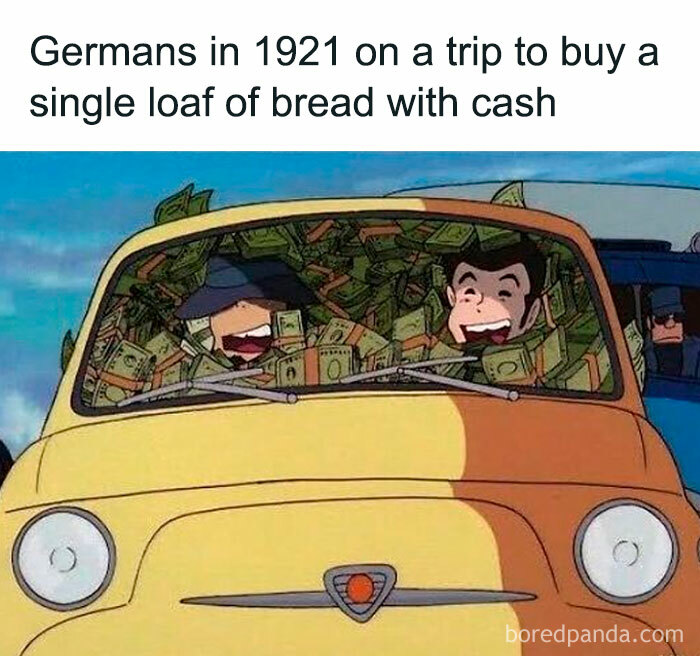
Image credits: history.told.in.memes
#42
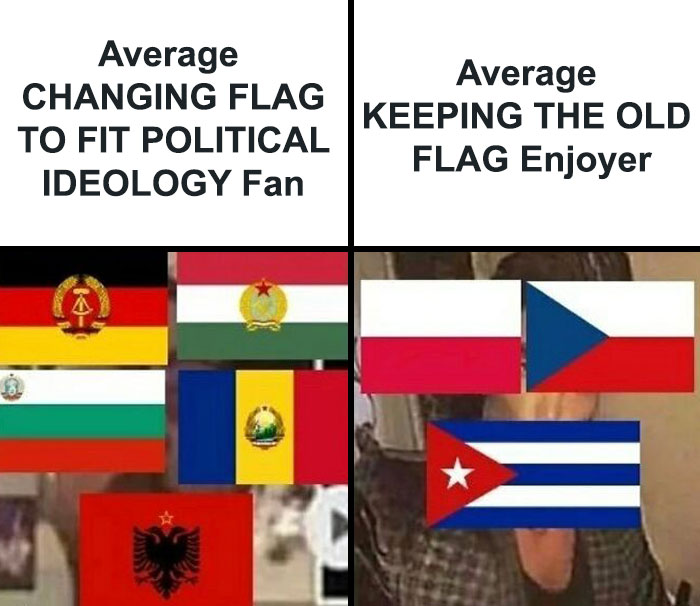
Image credits: history.told.in.memes
#43
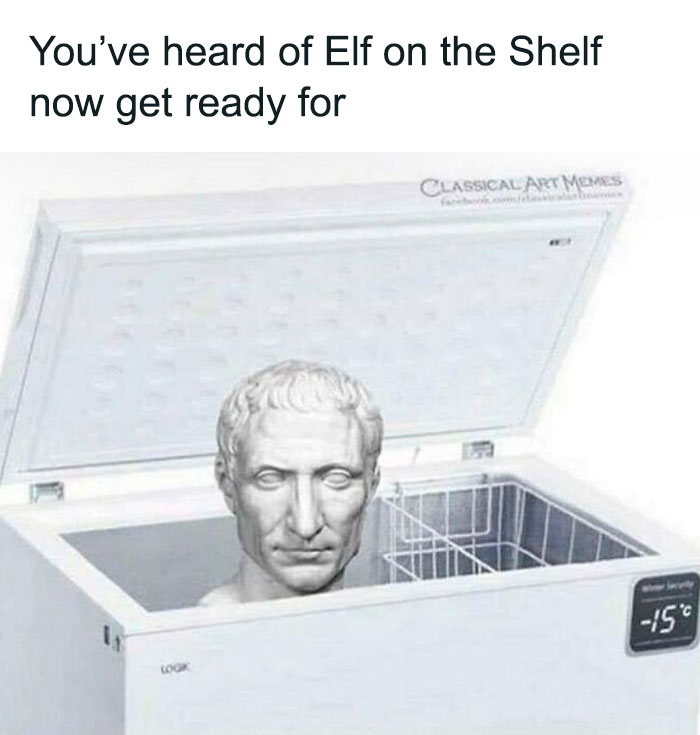
Image credits: history.told.in.memes
#44
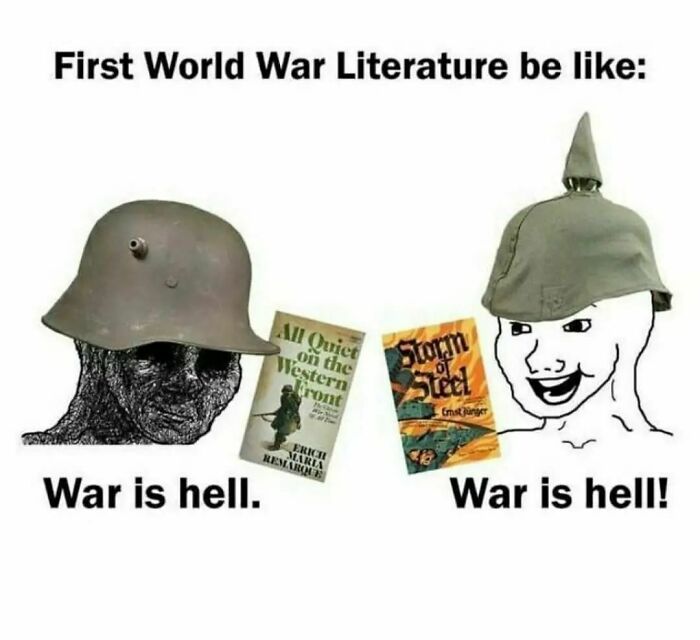
Image credits: history.told.in.memes
#45

Image credits: history.told.in.memes
#46

Image credits: history.told.in.memes
#47

Image credits: history.told.in.memes
#48

Image credits: history.told.in.memes
#49

Image credits: history.told.in.memes
#50

Image credits: history.told.in.memes
#51
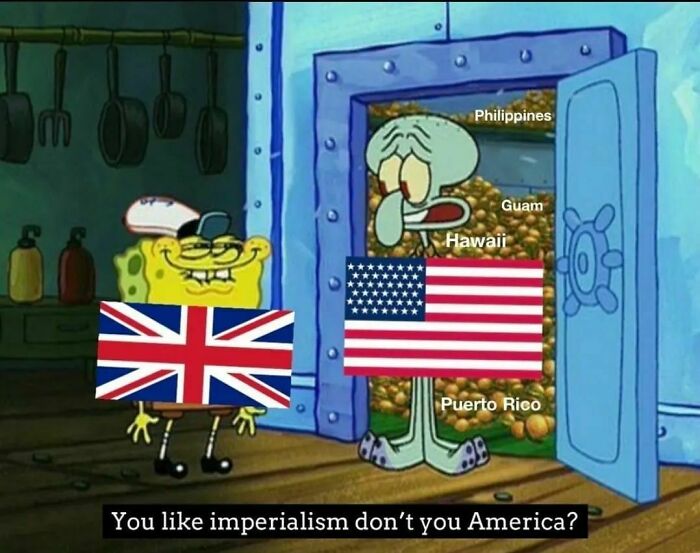
Image credits: history.told.in.memes
#52

Image credits: history.told.in.memes
#53

Image credits: history.told.in.memes
#54

Image credits: history.told.in.memes
#55
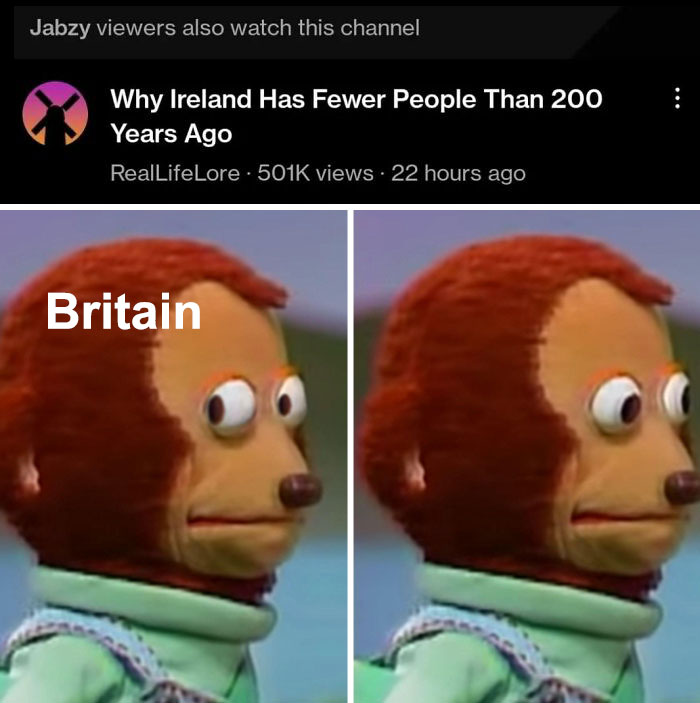
Image credits: history.told.in.memes
#56
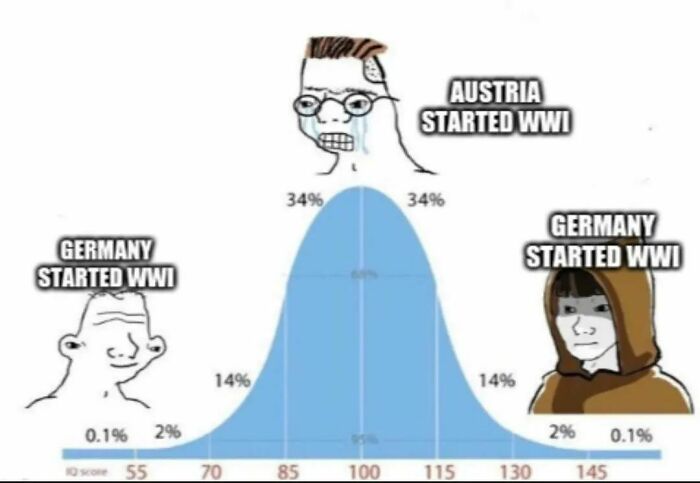
Image credits: history.told.in.memes
#57

Image credits: history.told.in.memes
#58
WW2 Axis in a nutshell.

Image credits: history.told.in.memes
#59
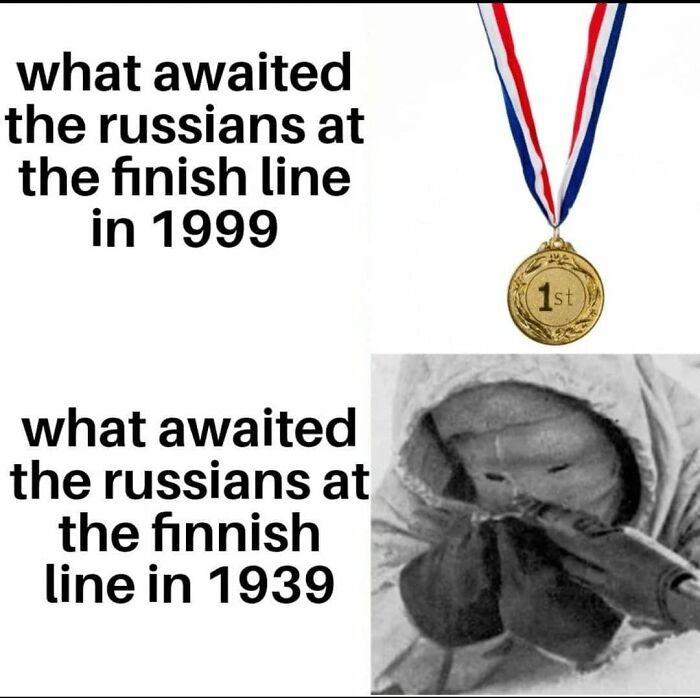
Image credits: history.told.in.memes
#60

Image credits: history.told.in.memes
#61
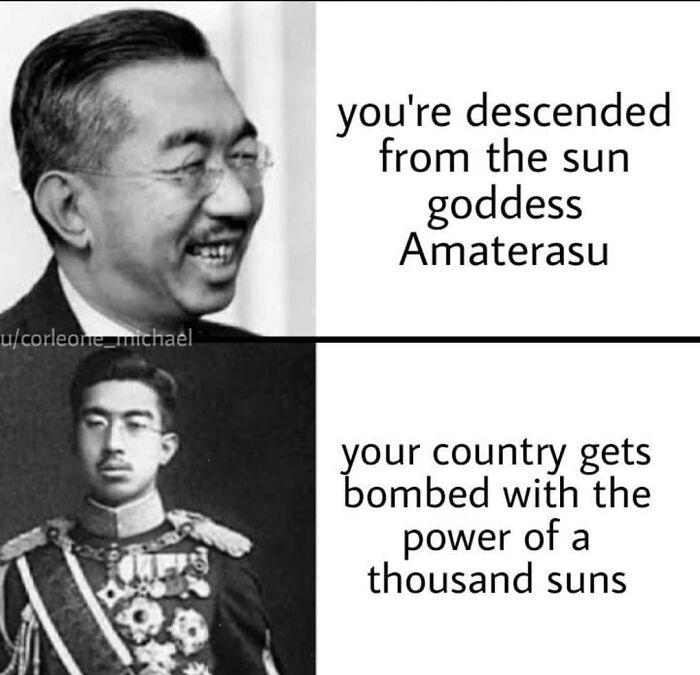
Image credits: history.told.in.memes
#62
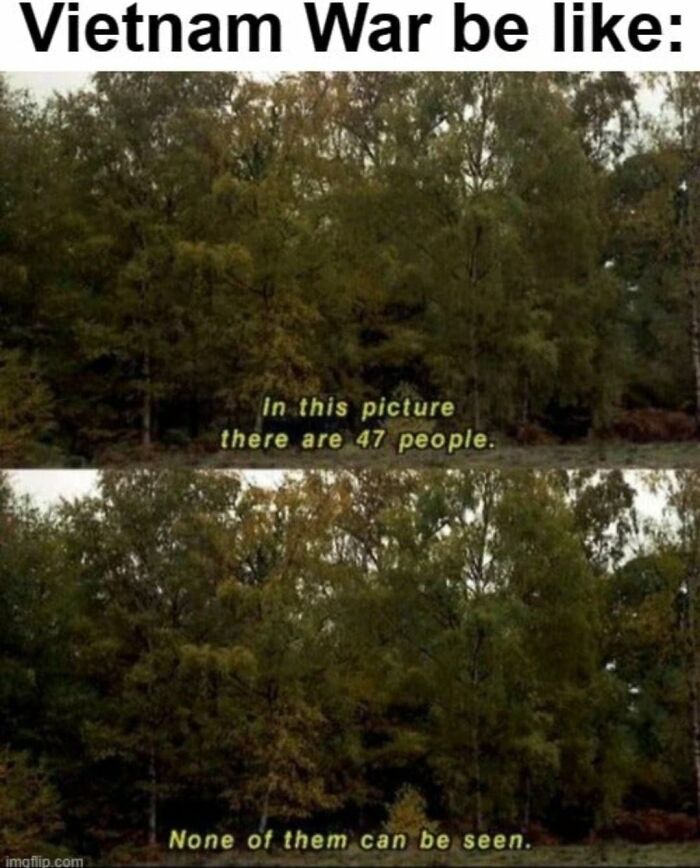
Image credits: history.told.in.memes
#63

Image credits: history.told.in.memes
#64

Image credits: history.told.in.memes
#65
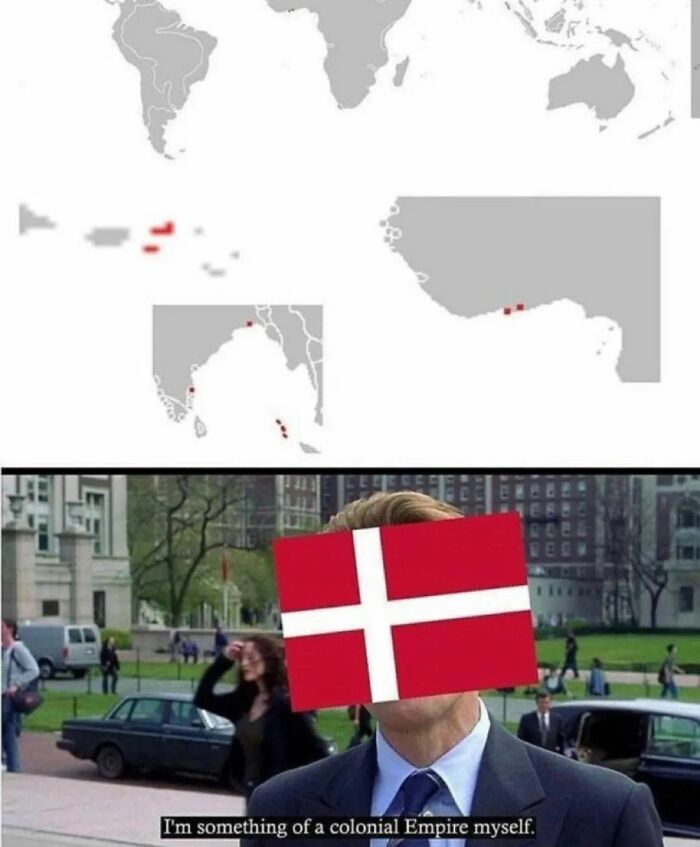
Image credits: history.told.in.memes
#66

Image credits: history.told.in.memes
#67
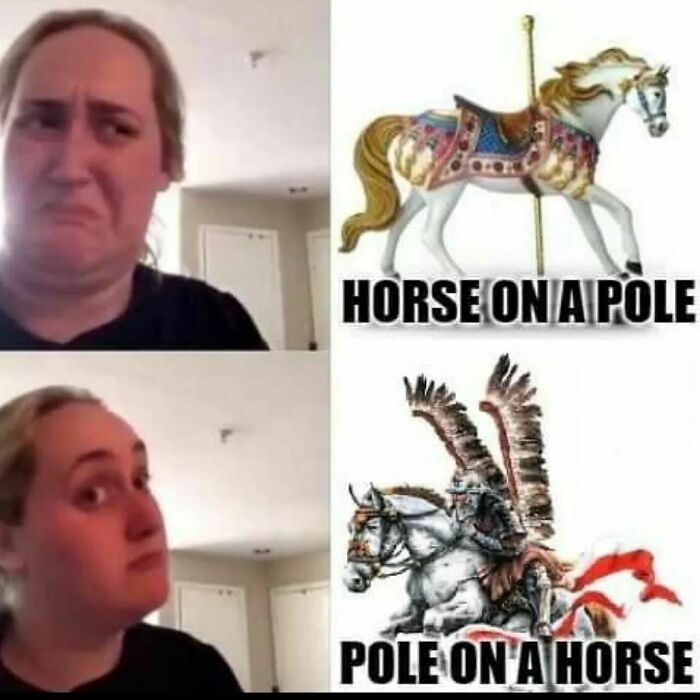
Image credits: history.told.in.memes
#68
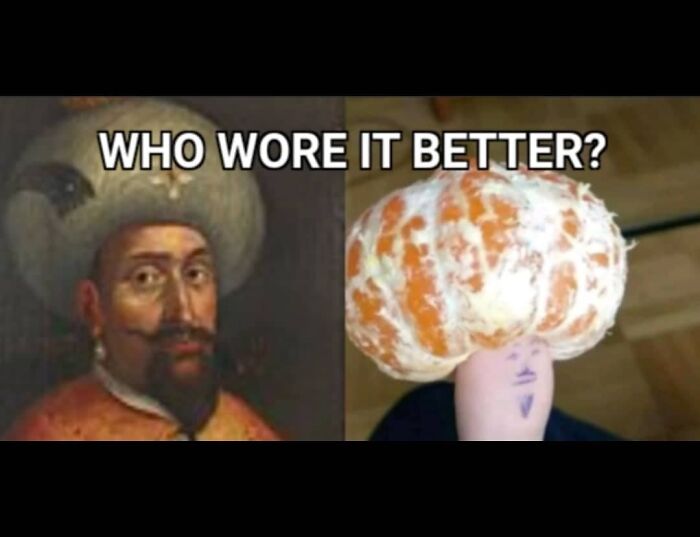
Image credits: history.told.in.memes
#69
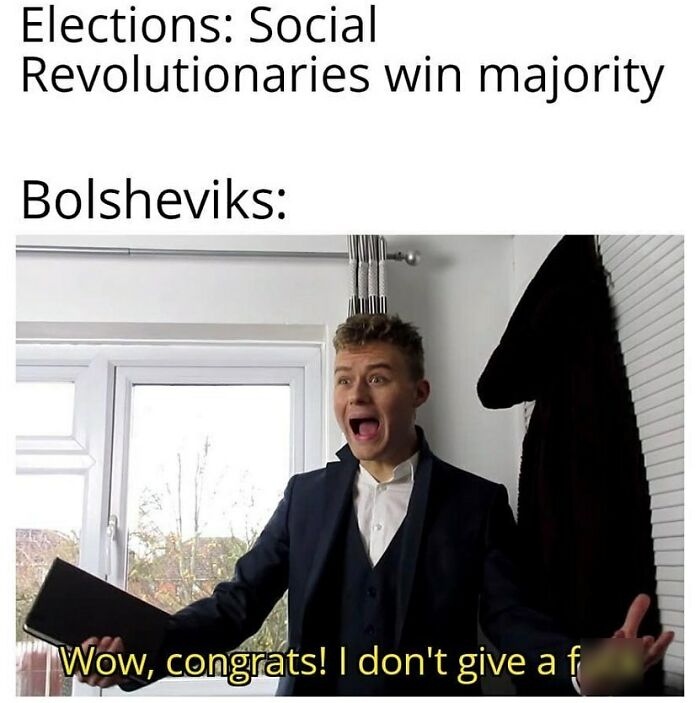
Image credits: history.told.in.memes
#70
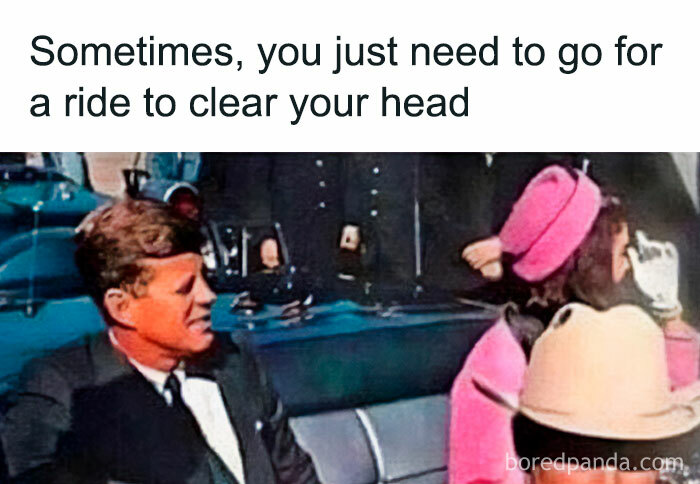
Image credits: history.told.in.memes
#71
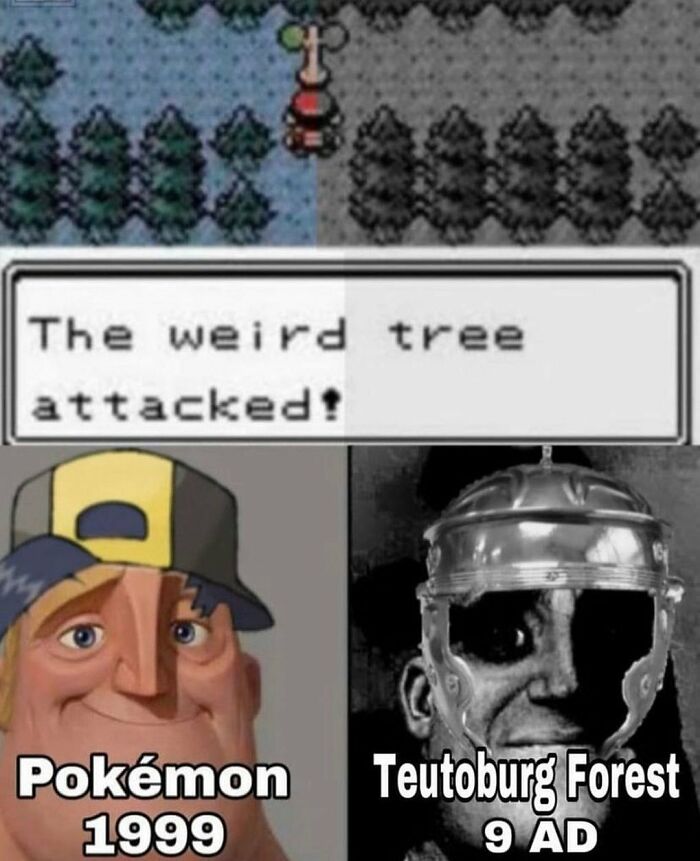
Image credits: history.told.in.memes
#72
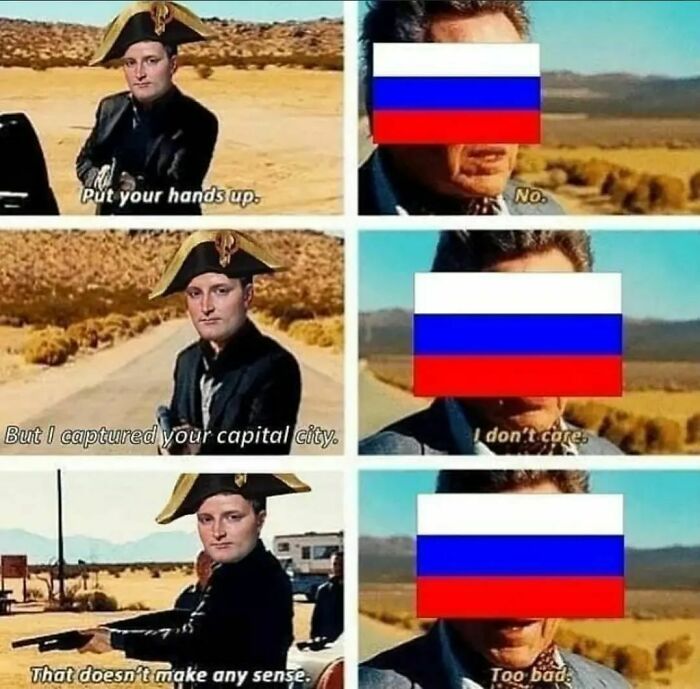
Image credits: history.told.in.memes
#73

Image credits: history.told.in.memes
#74
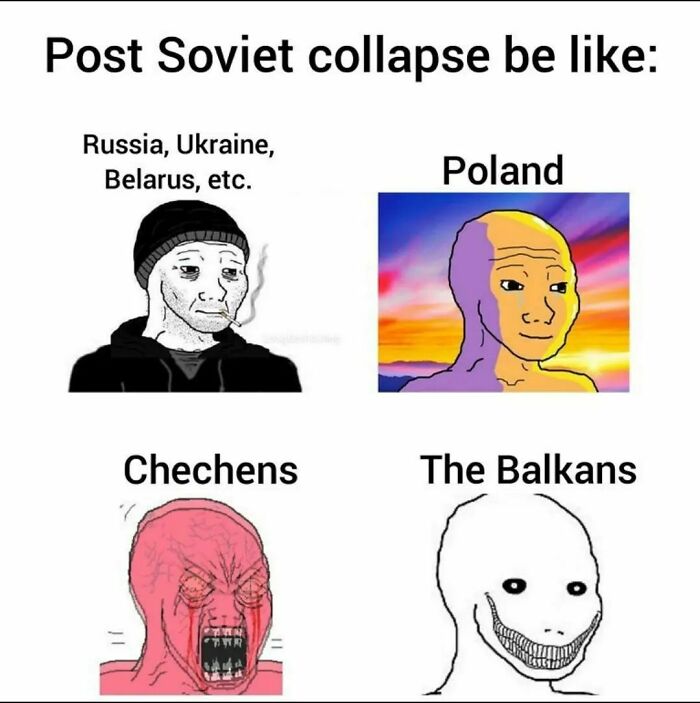
Image credits: history.told.in.memes
#75
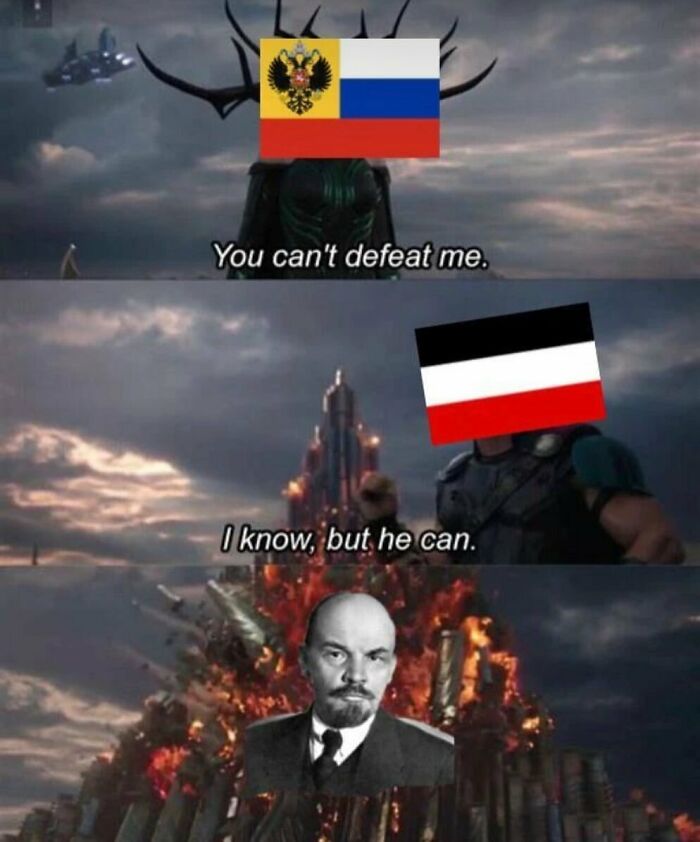
Image credits: history.told.in.memes
#76

Image credits: history.told.in.memes
#77
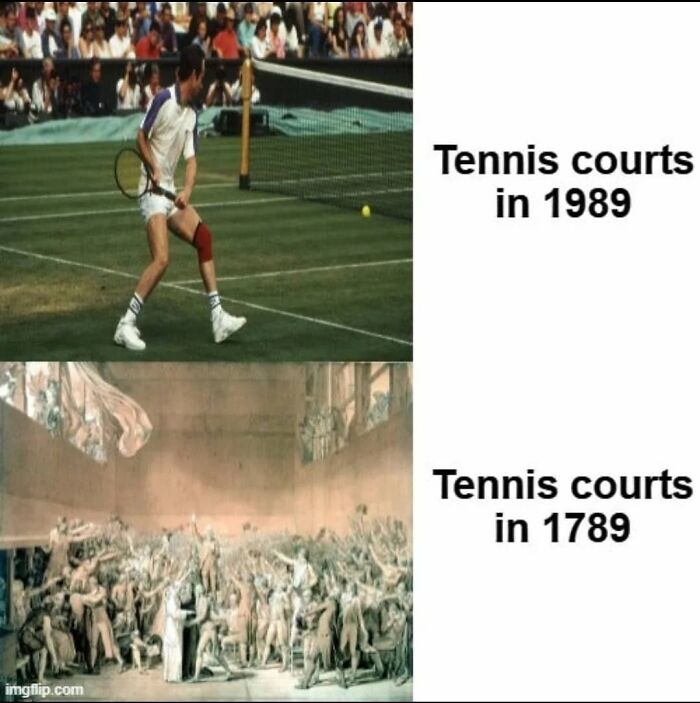
Image credits: history.told.in.memes
#78
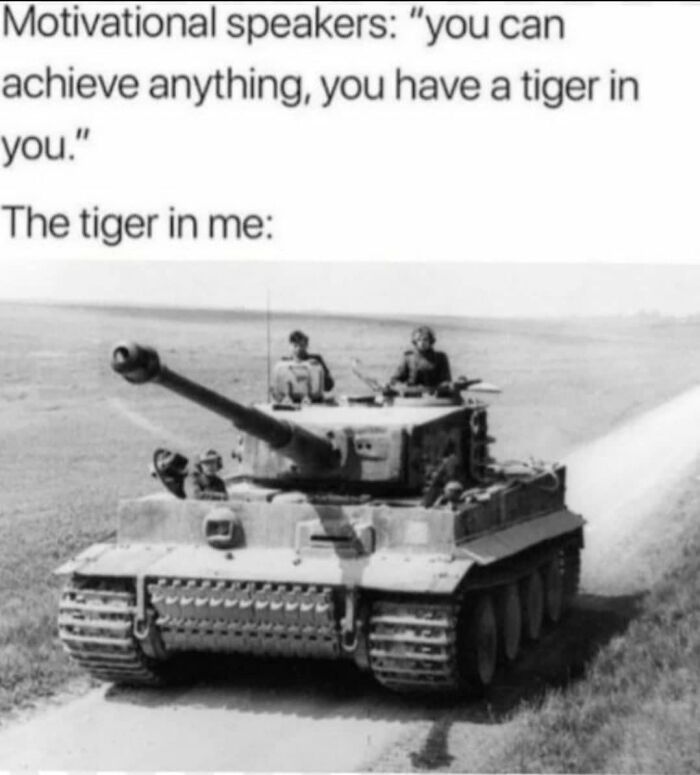
Image credits: history.told.in.memes
#79

Image credits: history.told.in.memes
#80

Image credits: history.told.in.memes
source https://www.boredpanda.com/history-told-in-memes-jokes/
ConversionConversion EmoticonEmoticon